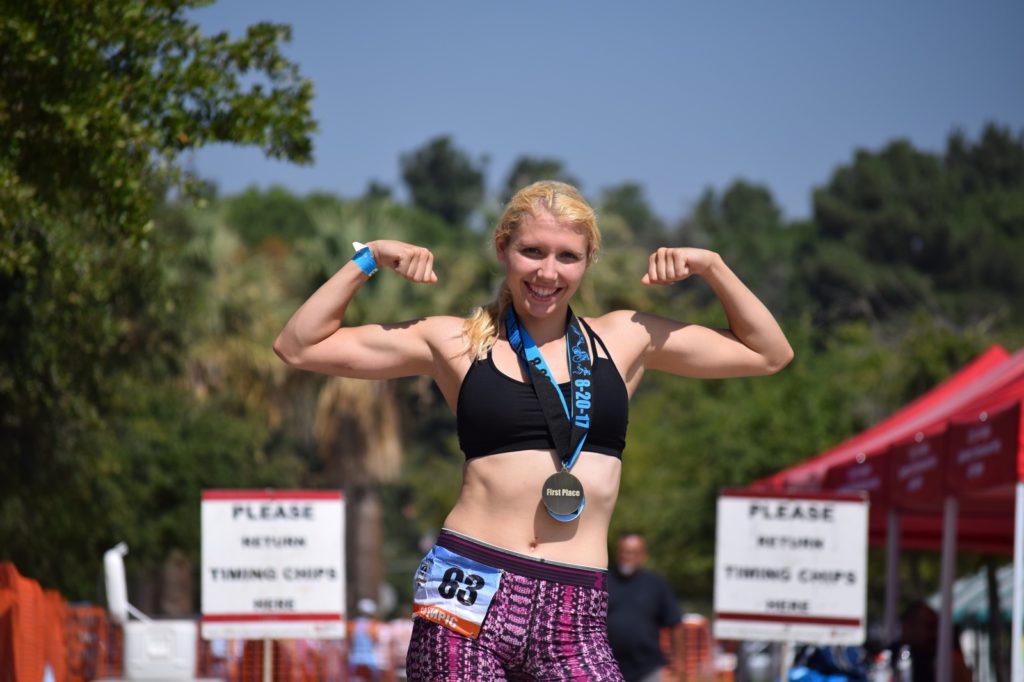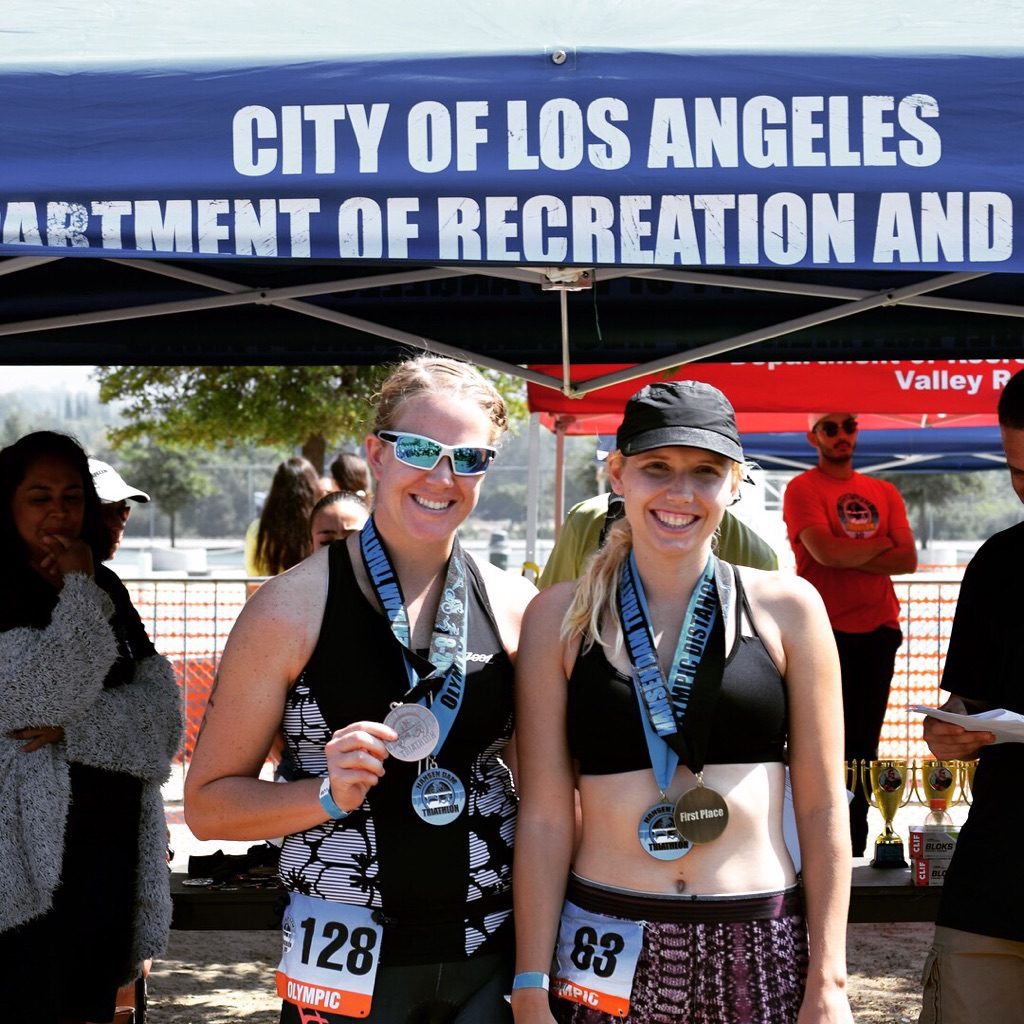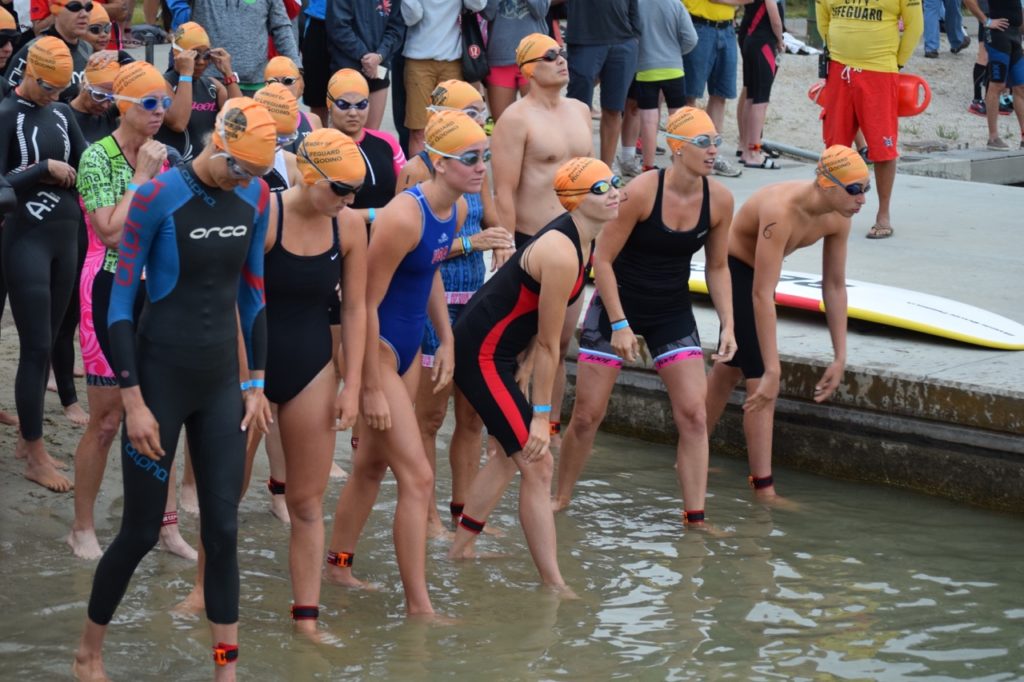Hi friends!! Mariah here, checking in to provide some information on my training.
My first triathlon is officially in the books. I now consider myself a professional triathlete…..just kidding. On a serious note, finishing a triathlon is a rewarding experience and I felt like I conquered the world when I crossed the finish line.
Competing in a triathlon is no small feat. It takes tremendous dedication and perseverance. It requires a significant amount of training. Don’t think just because you are a fit person, you can compete in a triathlon without any training. Although I don’t doubt you could finish, it is not wise. For one, triathlons are hard on your body. Trust me!! Before triathlon training, I was unaware of how many muscles I had. In a triathlon, you use just about every single muscle you can think of.
For instance, swimming triggers several muscle groups including the neck, arms, chest, back, and legs. After intense swimming workouts, I would experience soreness all over my body, particularly around my chest. I believe this was because my those muscles were working extra hard, compared to when I am running and it’s just the legs doing most of the work.
After bike workouts, I would surprisingly experience more soreness in my back than my legs. I soon realized that core strength was equally important to leg strength, because my core was keeping me stable during my long bike rides. Some of the back soreness was from the seated position and hunched over position you experience on long bike rides.
In addition, triathlons require a different type of fitness training. You are not merely training for one event. You need to focus on three individual events, and then train your body to transition from one event to the next. I trained for three months, alternating between bike, swim, and running workouts. Towards the end of the training plan, I combined two workouts into one, which usually included a bike workout followed by a thirty-minute run, or famously known as brick workouts.
I focused primarily on the bike-to-run transition because it was most difficult for me. I think this transition is difficult for most triathletes because by the time they transition off the bike, their legs are spent. Thus, if you want to excel, you need to train your legs to run on tired muscles.
Overall, I think I performed well for my first triathlon. My goal was to break three hours and I achieved that goal. I believe my time was around a 2:40 and first in my Age Group. However, I have a lot of room for improvement. For my next triathlon, I am going to make several adjustments to my training plan.
In particular, I learned the hard way that strength training is an important part of any training plan. I did not prioritize strength training and after the triathlon, I felt the pain of my choice. I strained my left hip flexor which was largely due to weak glute and core muscles. I also strained a muscle in my back which I believe was also contributed to a weak core. By the grace of God though, I didn’t experience a season-ending injury. Within a few days, the pain and soreness dissipated but it was a wake-up call to me.
My sister Bryanna has several workouts provided on the blog. I highly suggest looking over these workouts if you intend to compete in a triathlon. These workouts are also important for runners, as they target the muscle groups that are most weak in runners. Find some great ideas here for strength and core and follow along in Instagram for some short videos.
In addition to strength training, stretching is equally important. As mentioned above, triathlons trigger several different muscle groups. You may need to adjust your typical stretching session. For instance
my post-run stretching session usually takes about ten minutes and focuses on the same muscles. However, after a bike and swim workout, you need to stretch different muscle groups. Oftentimes, I neglected my core, chest, and arms. As a result, I would experience tightness for several days after workouts. Some of Bryanna’s favorite stretches can be found here.
Finally, I made the mistake of thinking I could take more cheat days then needed because I was burning a lot of calories. Although it is acceptable to have a cheat day occasionally, don’t fall into the pitfall I did. Just because you are burning a lot of calories doesn’t mean you can stray away from a healthy diet by eating junk food.
If anything, when you are training, you should adhere to a stricter diet. After intense workouts, your body needs the proper nutrition to rebuild. If you want to see real results, feed your body the nutrients it needs. Just to clarify, if you burn more calories, your daily calorie intake increases. You can eat more food (unless your goal is weightloss), just make sure it is the RIGHT food!!
Until Next Time Be Whole and Be Fit!!


